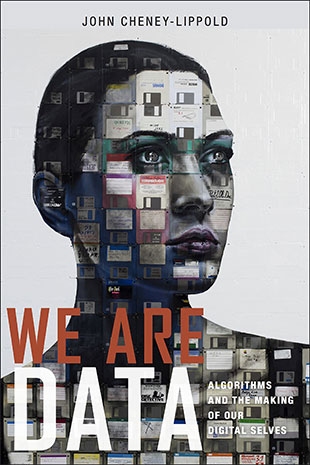In the mid-eighteenth century, the anarchist philosopher Pierre-Joseph Proudhon wrote this in The General Idea of the Revolution in the Nineteenth Century:
"To be governed is to be watched, inspected, spied upon, directed, law-driven, numbered, regulated, enrolled, indoctrinated, preached at, controlled, checked, estimated, valued, censured, commanded by creatures who have neither the right nor the wisdom nor the virtue to do so."
It's now the twenty-first century and this sounds very familiar in our shape-shifting world of digital culture. John Cheney-Lippold, Assistant Professor of American Culture and Digital Studies at the University of Michigan, is our guide through this arcane, frightening, complex, and volatile arena of information systems designed to measure, influence, and control.
In 2007 the data wars between Google, Microsoft, and Yahoo were in full swing over what digital humanist Frederic Kaplan called "the commodification of our textual lives." Computer scientist Roger Clarke describes this as dataveillance or "the systematic monitoring of people's actions or communications through the application of information technology."
Think about it. While we are asleep at night or offline, these dynamic algorithmic productions are listening and talking to the data about us and formulating new configurations of information. Algorithms use our data to discern our gender, race, sexuality, and citizenship. This monumental collecting of information about us is not for our benefit; it's collected for others.
With incremental leaps forward, Cheney-Lippold hits high stride in chapters on Subjectivity: Who Do They Think You Are?; Privacy: Wanted Dead or Alive; and Ghosts in the Machine. By the time we got to the last page in this book, we were exhilarated by both the territory covered and the fresh insights into digital culture.
